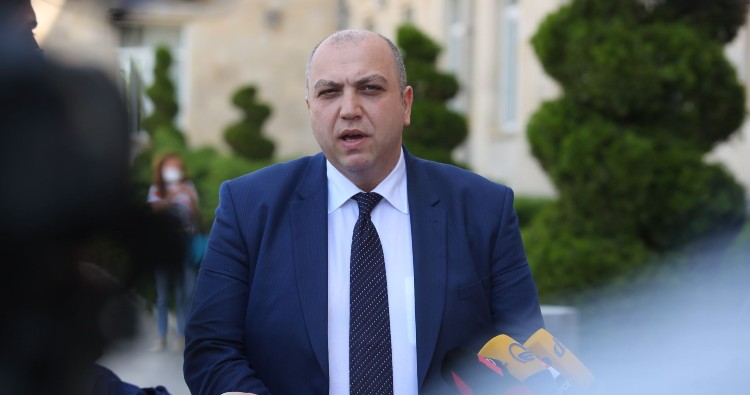Georgian infrastructure minister: proper infrastructure “additional boost” for current economic growth

"The budget of the [infrastructure] ministry is growing every year, and this year's budget is also a record - ₾2,900,000,000 (about $1bln) which, according to the data of the first 6 months, we have already fulfilled by 111 percent, with an excess of 11 percent”, the infrastructure minister noted. Photo: Ministry of regional development and infrastructure
The large-scale and technologically advanced, “unprecedented”, infrastructural projects are extremely important. Proper infrastructure is an “additional push” for the current economic growth of Georgia, the country’s infrastructure minister Irakli Karseladze said on Sunday.
Karseladze highlighted the involvement of citizens in the infrastructure projects and noted that last year the number reached 30,000, out of which 80 percent were Georgians, which provided stable income and helped them increase their skills and gain new experiences.
The infrastructure minister called the construction of the new Rikoti Highway “unprecedented”, and said the works on 90 bridges have been “underway”, with 32 tunnels, out of 51, already completed, adding that the part of the central sections was planned to open this year and the entire highway would be completed next year, which would make the Trans-Caspian international transport corridor, the so-called 'middle corridor', “more attractive” by reducing travel time from the Red Bridge, a crossing point between Georgia and Azerbaijan, to Sarpi, the Georgian-Turkish border.
Karseladze said the construction of the longest Kvesheti-Kobi tunnel in Georgia, 9-km long and 15-m in diameter, had “no analogues” in the world and has been a “historic” project in the social aspect, as it would enable locals to access the “basic services”, including medical and educational ones.
The minister also reviewed the Samtredia-Grigoleti road project in Georgia’s west, and the construction of a 17-km, four-lane, access-controlled highway in eastern Georgia's winemaking region of Kakheti, and noted the main sections of the projects would open in 2024.
The Gurjaani bypass, which opened last year, has a “significant effect” in improving road safety and reduces the travel time by half, Karseladze said, adding the construction of the Bakurtsikhe-Tsnori road section of the same importance has been underway.
The budget of the [infrastructure] ministry is growing every year, and this year's budget is also a record - ₾2,900,000,000 (about $1bln) which, according to the data of the first 6 months, we have already fulfilled by 111 percent, with an excess of 11 percent”, the infrastructure minister noted.
Karseladze also emphasised that within the framework of the development strategy - Vision 2030, initiated by the Georgian prime minister Irakli Garibashvili, ₾32 billion (about $11bln) would be invested in the development of the country's infrastructure, out of which ₾17 billion (about $6bln) would be used for road infrastructure, including approximately ₾2 billion (about $707mln) for the advancement of the Kakheti road.
 Tweet
Tweet  Share
Share